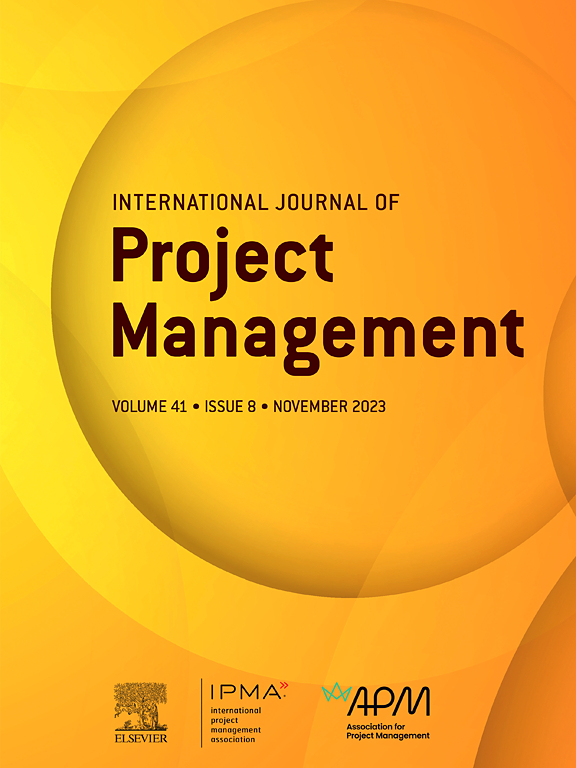可持续转型中的叙事与反叙事:多层次视角下的鹿特丹港研究
IF 7.5
1区 管理学
Q1 MANAGEMENT
International Journal of Project Management
Pub Date : 2025-10-01
DOI:10.1016/j.ijproman.2025.102766
引用次数: 0
摘要
基础设施项目可以作为创新发展的利基,有助于实现网络所有者的战略目标,并推动更广泛的系统转型。然而,有限的研究考察了围绕基础设施项目的叙述和反叙述是如何塑造可持续转型的。通过对鹿特丹港的案例研究,我们分析了三个嵌入式项目——Maasvlakte 2、RDM校园和氢气管道——如何反映和塑造了20年来不断发展的叙事和反叙事。本研究以多层次视角(MLP)为基础,展示了像鹿特丹港务局(PoRA)这样的基础设施所有者如何战略性地调动叙事框架,随着时间的推移重塑现有制度。该研究通过强调基础设施项目所有者如何通过塑造、捍卫和调整项目叙述来应对与过渡相关的紧张关系,从而影响可持续性轨迹,为项目管理和转型研究的辩论做出了贡献。本文章由计算机程序翻译,如有差异,请以英文原文为准。
Narratives and counter-narratives in sustainability transitions: A study on the Port of Rotterdam from a multi-level perspective
Infrastructure projects can act as niches for innovation development, contribute to strategic goals of network owners, and drive broader systemic transitions. However, limited research has examined how sustainability transitions are shaped through narratives and counternarratives around infrastructure projects. Using a case study of the port of Rotterdam, we analyze how three embedded projects - Maasvlakte 2, RDM Campus, and the Hydrogen Pipeline - reflected and shaped evolving narratives and counter-narratives over 20-years. Grounded in the Multi-Level Perspective (MLP), the study demonstrates how an infrastructure owner like the Port of Rotterdam Authority (PoRA) strategically mobilized narrative framing to reshape existing regimes over time. The study contributes to the debate on project management and transition studies by highlighting how infrastructure project owners respond to transition-related tensions by shaping, defending, and adapting project narratives over time, thereby influencing sustainability trajectories.
求助全文
通过发布文献求助,成功后即可免费获取论文全文。
去求助
来源期刊

International Journal of Project Management
MANAGEMENT-
CiteScore
12.30
自引率
26.20%
发文量
83
审稿时长
59 days
期刊介绍:
The International Journal of Project Management is recognized as a premier publication in the field of project management and organization studies. Our main objective is to contribute to the advancement of project management and project organizing through the publication of groundbreaking research.
We are dedicated to presenting fresh insights and new knowledge in various domains, including project management, program management, portfolio management, project-oriented organizations, project networks, and project-oriented societies. We actively encourage submissions that explore project management and organizing from the perspectives of organizational behavior, strategy, supply chain management, technology, change management, innovation, and sustainability.
By publishing high-quality research articles and reviews, we strive to revolutionize the academic landscape and propel the field of project management forward. We invite researchers, scholars, and practitioners to contribute to our journal and be a part of the progressive development in this exciting field.
 求助内容:
求助内容: 应助结果提醒方式:
应助结果提醒方式:


